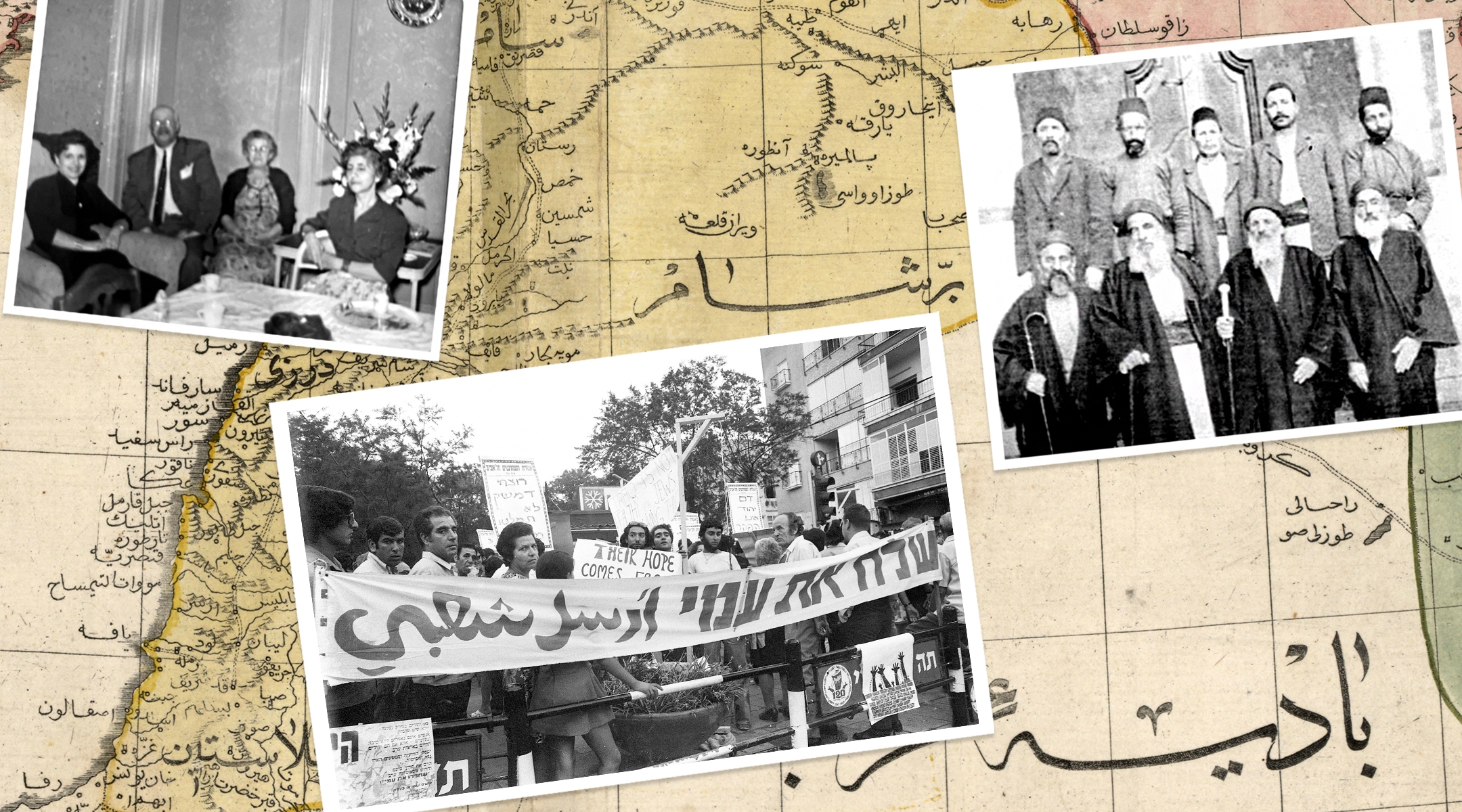(JTA) — I grew up in a small Syrian Jewish enclave in Brooklyn in the 1960s. It was a wonderful community with many old-world traditions. I missed it when I grew up and moved to Manhattan.
In the days before electronic marketing, I received tons of unsolicited mail. I also received mail that most people did not: donation requests from American Palestinian groups. If you were going through a phone book, you would definitely identify my last name as of Arabic origin and put me on the list.
Like many Jews who had centuries-long roots in Arabic countries such as Syria, Lebanon, Libya and Jordan, my family had also long ago adopted Arabic family names — often by the chosen trade. My last name “Sayegh” means “jewel maker” in Arabic and is spelled to reflect that guttural “gh” sound that even I cannot pronounce correctly. So, it’s not totally surprising that Palestinian groups thought I was one of them.
Over the past years, I have often been frustrated when I find people do not understand the trauma of the 700,000 Jews from all over the Middle East who were violently expelled from their countries in 1948 and how it resonates today. Pro-Palestinian activists who call out Israel as a “European settler colonial project” omit a critical part of the story that calls into question their claim. They ignore the Mizrahi majority in Israel who are descendants of Jews expelled from Arab lands when Israel was declared a state.
These “Arab Jews” — an often-contested term that I think is nonetheless fitting — experienced tremendous loss of life, property, family wealth and history that went back hundreds and sometimes thousands of years, and these experiences need to be acknowledged. By including it in the narrative of the current Israeli/Palestinian conflict, it will help balance the conversation by taking into account the actual historical events of 1948 and the impact on all the involved parties.
My family had a long history in Syria before my grandparents came to America in the early 1900s. My grandfather was a true Damascene who was ready for an adventure and left his very large family to see what America was all about. My grandmother’s family moved from Aleppo to Palestine where she was born and grew up. Faced by the extreme poverty in Jerusalem, her family decided to follow others to America. My grandparents met in Marseilles waiting for the boat that would take them to America.
Even though I have belonged to Jewish communities most of my adult life, my Syrian Jewish heritage continues to define me. It’s in the foods I like, the nasal intonation of the prayers that I often miss and in customs such as naming children after living relatives (a no-no among most Ashkenazim). I was blessed to have spent 30 years of my life knowing my grandmother Lily, aka Leah, after whom I am named.
And as a “Syrian Jew,” I know what it means to belong to a minority of a minority in America. The Ashkenazi majority, with origins in Eastern Europe, defines Jewish culture in America. Many American Jews with roots in Yiddish-speaking lands do not fully acknowledge that Jews come from every corner of the world — Asia, Africa, the Middle East and parts of the Caucasus — all of whom have different languages and customs. Nor do they seem to be fully aware of the experience of Jews in Arabic countries in and after 1948.
When I moved to Israel in 1983, I finally met people who knew how to pronounce my last name and understood my Jewish cultural background. I also met my Great Uncle Daniel, who made it to Israel by foot after fleeing the extreme violence in Syria in 1948, and his large family.
As a descendant of Syrian Jews, I propose that now is the time to highlight these stories so they can take a prominent place in the conversation on the Middle East by all Americans — including all American Jews. What my family and hundreds of thousands of other Arabic Jews suffered and lost should not be forgotten, or eclipsed by the well-publicized plight of Palestinians. With the founding of the State of Israel, many Arabic Jews were expelled from their countries or were exposed to such horrific violence they had no choice but to leave. Many went to Israel. Their descendants now represent over 50% of the population of Israel.
The legacy of Arabic Jews might also give hope to all sides in a region where hope is in short supply. There is no side in any war that is unscathed and unimpacted. For Palestinians, this history might allow them to point to people who rebuilt meaningful new lives even after experiencing traumatic events.
By bringing to the forefront the existence and truth of this often overlooked narrative, we can create a better future for all based on the realities of our histories.
JTA has documented Jewish history in real-time for over a century. Keep our journalism strong by joining us in supporting independent, award-winning reporting.







